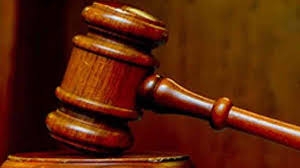Ukraine’s energy and justice ministers have resigned following a major anti-corruption probe into an alleged $100m (£76m) embezzlement scheme in the country’s energy sector.
President Volodymyr Zelensky on Wednesday called for the dismissal of Energy Minister Svitlana Grynchuk and Justice Minister Herman Halushchenko, after anti-corruption agencies accused several senior figures of siphoning off vast sums linked to state energy contracts, including at the national nuclear operator Enerhoatom.
The scandal, revealed on Monday by the National Anti-Corruption Bureau of Ukraine (Nabu) and the Specialised Anti-Corruption Prosecutor’s Office (Sap), alleges that ministers and top officials received illicit payments from contractors building fortifications designed to protect energy infrastructure from Russian attacks.
Among those named are former Deputy Prime Minister Oleksiy Chernyshov and businessman Timur Mindich, a co-owner of Zelensky’s former TV studio Kvartal95, who has reportedly fled the country. Some of the figures implicated are current or former close associates of the president, adding to the political sensitivity of the case.
Halushchenko has denied wrongdoing and vowed to defend himself against the allegations. Grynchuk said in a social media post that “within the scope of my professional activities there were no violations of the law”.
Nabu and Sap say their 15-month investigation, backed by around 1,000 hours of audio recordings, uncovered systematic kickbacks from Enerhoatom contractors, ranging from 10% to 15% of contract values. The agencies released photos of bags stuffed with cash and allege that large portions of the funds were laundered and moved abroad, including to Russia.
Prosecutors claim the proceeds were channelled through an office in Kyiv linked to the family of former Ukrainian MP and current Russian senator Andriy Derkach.
The revelations come as Russia intensifies strikes on Ukraine’s energy infrastructure, including substations feeding nuclear power plants, putting additional pressure on Kyiv to show it is protecting vital resources and public funds.
The case is likely to reignite scrutiny of corruption in Ukraine, long seen as a systemic problem despite the creation of Nabu and Sap a decade ago. In July, nationwide protests erupted over moves to curb the independence of both bodies, prompting fears that Ukraine could jeopardise its EU candidate status, which is conditional on credible anti-corruption efforts.
Western partners, including G7 ambassadors, voiced serious concern at the time, forcing Zelensky to reverse course and restore the agencies’ autonomy. The latest scandal, however, is set to raise fresh questions about the depth and sincerity of Ukraine’s reform drive—at a moment when it can least afford to lose international trust and support.




















